President Adama Barrow of The Gambia joined Senegalese officials and other dignitaries on Sunday to honor the memory of West African Tirailleurs massacred at Thiaroye in 1944.
The solemn ceremony, held at the Thiaroye military cemetery, marked the 80th anniversary of the tragic event, during which African soldiers who had fought for France were killed by French troops after demanding their unpaid wages.
President Barrow, alongside other Heads of State, laid a wreath to pay tribute to the fallen heroes.
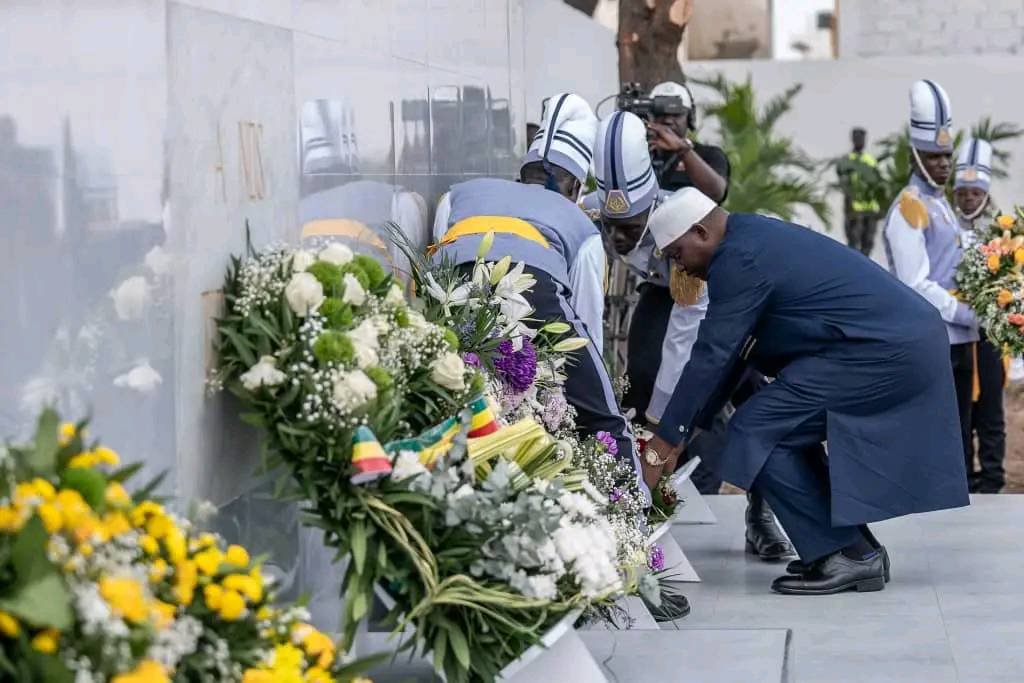
In his remarks, Senegalese President Bassirou Diomaye Faye emphasized the significance of the commemoration, announcing the establishment of an international research committee to uncover the full details of the tragedy.
“This is not about promoting hate,” President Faye said, “but about restoring the honor and dignity of those who gave their lives for justice and fairness.” He underscored the need for such commemorations to preserve historical truths and foster reconciliation.
Representing France, Foreign Minister Jean-Noël Barrot acknowledged the atrocities committed by French troops during the incident and condemned the brutality inflicted upon the Tirailleurs. Barrot called for a thorough investigation to determine the exact number of casualties, noting that conflicting accounts have long obscured the full scale of the massacre. “France is committed to recognizing its historical responsibility and to promoting collective memories that bring unity,” Barrot said.
Speaking on behalf of the African Union, Mauritanian President H.E. Mohamed Ould Ghazouani lauded the unwavering courage of the African Tirailleurs, who stood for their rights against oppression. He described their sacrifice as a testament to the resilience and dignity of African people.
The Tirailleurs, primarily West African soldiers recruited by the French colonial army, had played critical roles in various campaigns during World War II. Following their return to Senegal, they were stationed at the Thiaroye military camp, where they demanded the payment of their earned wages.
Their plea was met with violence, leading to the massacre.
The exact number of victims remains unknown, but the tragedy has since become a symbol of the struggle for justice and recognition of African contributions to global conflicts.
The commemoration concluded with prayers, cultural performances, and speeches aimed at educating future generations about the sacrifices of the Tirailleurs and the importance of historical accountability.

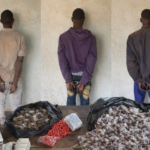

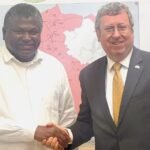
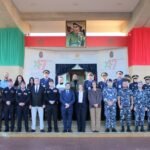


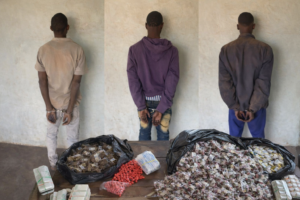

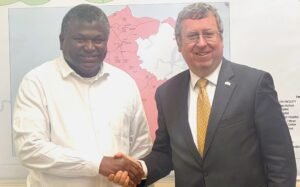
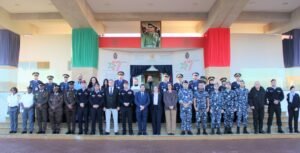
More Stories
U.S. Embassy Banjul hosts media roundtable on bilateral relations, transparency
Banjul Mayor hails Senegal’s AFCON triumph, praises discipline, continental pride
U.S. Mission Nigeria reopens American Center with arts, culture, technology focus